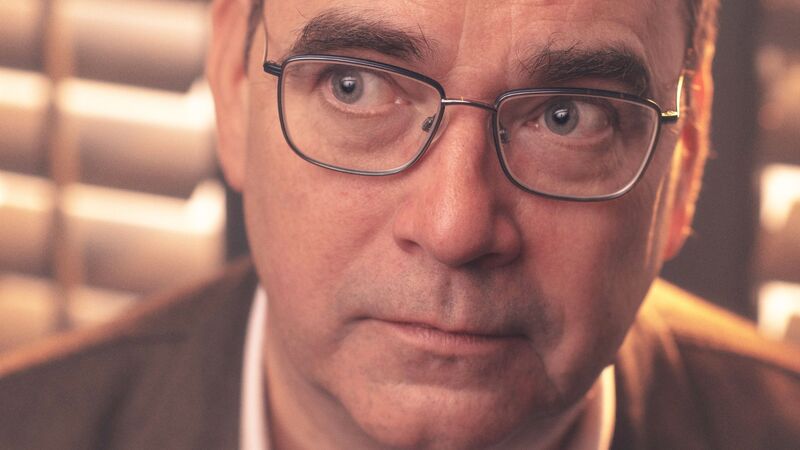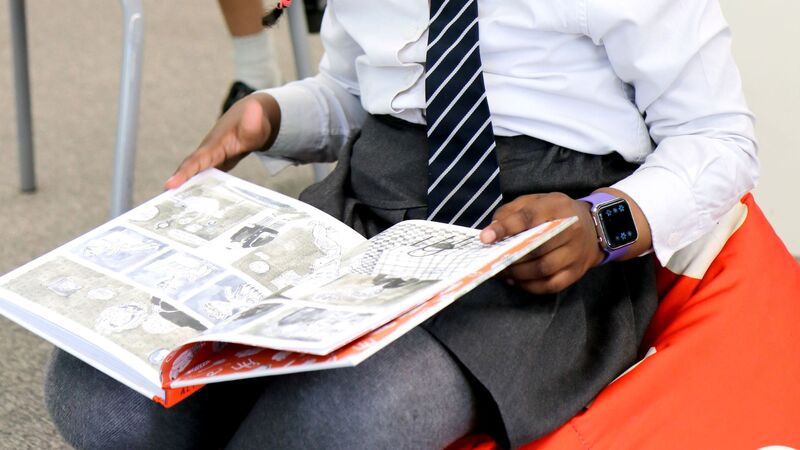You are viewing your 1 free article this month. Login to read more articles.
Speculative fiction is recognising the power of disability
In 2016, the internet was rife with divisive opinions over Jojo Moyes’ Me Before You. The novel, published in 2012, chronicled the relationship between a recently-paralyzed man, Will, and his caregiver, Louisa. The 2016 film, starring Emilia Clarke and Sam Claflin, faced significant backlash over its ending. Despite his burgeoning relationship with Louisa, Will commits rational, assisted suicide.
Traditional storytelling is rife with similar narratives. In Emily St. John Mandel’s 2014 novel, Station Eleven, a disabled man commits suicide to relieve his brother of the burden of his care. Steven Knight’s The Last Words of Will Wolfkin boasts a disabled protagonist, only to cure that protagonist in the first chapter.
Even positive examples of disability representation are often twisted by the ableism of the industry. Bran Stark, of George R. R. Martin’s A Song of Ice and Fire fame, is lauded for embracing his identity as a cripple. However, in the final season of HBO’s Game of Thrones, the character was given the title of “Bran the Broken”—a far cry from GRRM’s wise young man with magic powers. Hawkeye, the archer turned superhero played by Jeremy Renner in the Marvel Cinematic Universe, is deaf in the comics, but shows no inkling of disability on the big screen.
We have, over the years, made progress. Leigh Bardugo’s Six of Crows duology features a compelling character by the name of Kaz Brekker. A con man and a thief, Brekker also uses a cane, and is impacted—but not hindered—by his disability. In 2018, the disability community celebrated the publication of Unbroken: 13 Stories Starring Disabled Teens, an anthology of short stories featuring disabled characters. Last but not least, the popularity of Corinne Duyvis’ #OwnVoices and Beth Phelan’s #DVpit point to greater diversity in the industry.
But there is still work to be done. Disabled characters are villainized (see Benicio del Toro’s codebreaker with a speech impediment in Star Wars: The Last Jedi). Either they’re celibate and homebound or chasing normalcy. They are objects of pity. And they’re certainly not capable of having adventures of their own. Little by little, disability representation is making strides. But disabled characters, and the authors who write them, are still “typecasted,” relegated to tragic love stories and coming-of-age narratives.
I grew up with a deep love of speculative fiction. I desperately wanted to discover a floating city in a far-off galaxy, with monsters and ancient secrets and, most importantly, the stars. But I quickly realized that disabled people were barred from the magic of speculative fiction. Girls in wheelchairs didn’t belong in space; they were stuck on Earth. To see the stars, they either have to fix themselves or prove their worth. The alternative was, of course, a tragic death.
The industry, and the fairy tales it sells, would have us spurn our disabled—celibate, homebound—lives in favor of a mythical future. This is ableism at its most insidious. Like Will Wolfkin, we can pin our dreams on magical cures, or we can step outside the narrative of traditional storytelling and embrace the life-giving creativity of speculative fiction.
More than fantastical locales or optimistic visions of the future, speculative fiction calls for imagination. Playfulness. Idealism grounded in concrete action. Speculative fiction retains the hopefulness of the fairy tale but places the nexus of responsibility on us, the readers. Instead of waiting for the advent of magical cures, we are to engage in and court creation. We are to bring about the utopian vision of the fairy tale by speculating and experimenting.
The industry would have us believe that disability and adventure cannot coexist; to see the stars, disabled girls must die to what makes them unique, to the physical and mental barriers that shape their lives. Speculative fiction, on the other hand, argues that disability is a source of power. Disability encourages invention, adaptation, forward momentum. Disability questions our understanding of “normalcy” and pushes us to expand our ideas of value and worth.
We see this in Going Further, an anthology of short stories that imagine the future of mobility. In “Skye Finds Her Magic,” the titular character discovers a future of clean energy and adaptive mobility devices. In “Let Me Show You Something,” a disabled man reclaims a lifelong passion alongside his partner. In “The Velocity of Freefall,” barriers to accessible flights are dismantled, allowing the protagonists to serve in the Peace Corps.
Each story grapples with disability. Skye is frustrated with the ableism and inaccessibility of her world. Carter, the narrator of “Let Me Show You Something,” grieves his leg paralysis and the hobby it stole from him. In “The Velocity of Freefall,” mobility challenges prevented Blaire from traveling the world for years.
The industry would have us stop there, closing the book on Skye, Carter, and Blaire. But speculative fiction recognizes the power of disability. Speculative fiction allows disabled characters, and the disabled authors who write them, to imagine a new world. Speculative fiction encourages us, the readers, to dream alongside them—and then, once we’re heady with possibility, make those visions a reality.
---
Brianna Albers is a storyteller living in Minneapolis-St. Paul. In 2016, she founded Monstering, a magazine for disabled women and nonbinary people; in 2017, she co-founded ZRIE, a private new media collective. She consults as a patient ambassador for SMA My Way, writes the column “The Wolf Finally Frees Itself” for SMA News Today and recently finished the first draft of her space fantasy, #WaxingCrescent. Find her online at briannahopealbers.com and on social media @briehalbers.
Going Further: Imaging the Futures of Mobility is a collection of short future fiction stories that imagines a world of unlimited mobility, commissioned by the Mobility Unlimited Challenge and launched by the Toyota Mobility Foundation in partnership with Nesta Challenges. The $4 million global challenge aims to improve the lives of millions, through innovative personal mobility devices incorporating intelligent systems. Including work by authors including Penny Pepper, John Wiswell and Brianna Albers, inspired by the five devices in the final of the Challenge, it can be found online and it is available to download.














